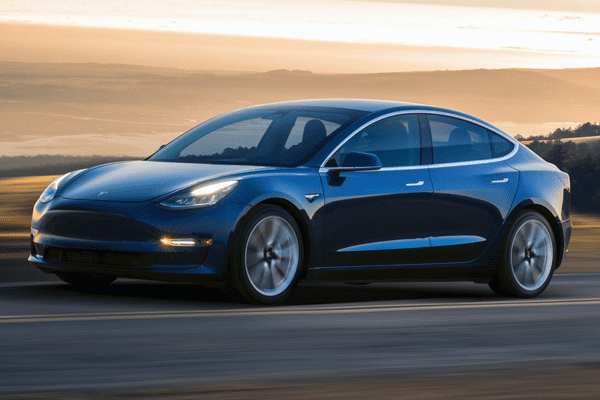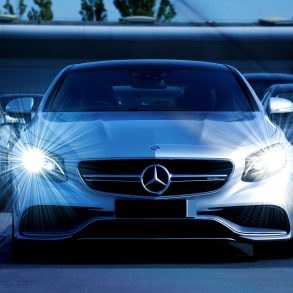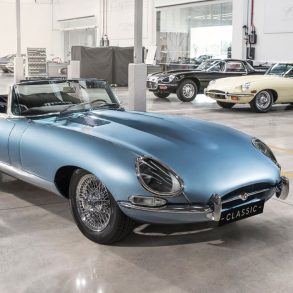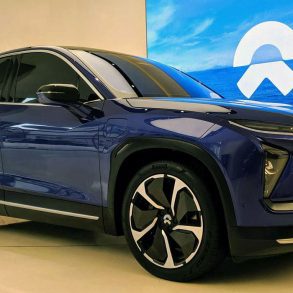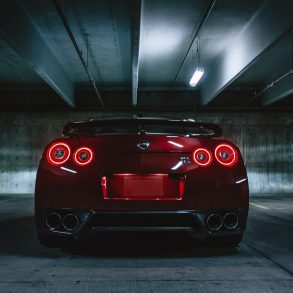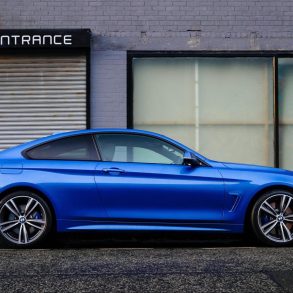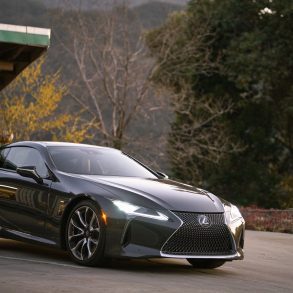 After discussing overall worldwide car sales in 2018, let’s zoom in on the most booming segment of all: that of EVs. Global sales of battery electric cars increased 73% in 2018 to 1.26 million units, after already jumping 86% the year before. That means worldwide sales of EVs jumped more than threefold in just two years time. Of course these are all new records as the market for electric cars is still in its infancy and has plenty of room to grow in coming years. The major factors pushing up EV sales in 2018 were demand from China (partially thanks to government incentives), the launch of the Tesla Model 3 and the diesel crisis in Europe which helped consumers become aware of the available alternative powertrain technologies and the benefits of driving electric. China was by far the largest market for electric cars, with 61% of worldwide sales registered in this market, followed by the USA with 16.6% and then Norway with 3.6%, which is also the country with – by far – the highest penetration of EVs worldwide. At 31.2%, battery electric cars represented almost 1 in every 3 sales in Norway. Including plug-in hybrids, that figure would even increase to nearly 1 in every 2 sales.
After discussing overall worldwide car sales in 2018, let’s zoom in on the most booming segment of all: that of EVs. Global sales of battery electric cars increased 73% in 2018 to 1.26 million units, after already jumping 86% the year before. That means worldwide sales of EVs jumped more than threefold in just two years time. Of course these are all new records as the market for electric cars is still in its infancy and has plenty of room to grow in coming years. The major factors pushing up EV sales in 2018 were demand from China (partially thanks to government incentives), the launch of the Tesla Model 3 and the diesel crisis in Europe which helped consumers become aware of the available alternative powertrain technologies and the benefits of driving electric. China was by far the largest market for electric cars, with 61% of worldwide sales registered in this market, followed by the USA with 16.6% and then Norway with 3.6%, which is also the country with – by far – the highest penetration of EVs worldwide. At 31.2%, battery electric cars represented almost 1 in every 3 sales in Norway. Including plug-in hybrids, that figure would even increase to nearly 1 in every 2 sales.
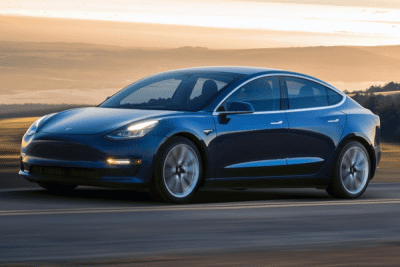 The best selling maker of EVs worldwide was of course Tesla thanks to the Model 3, with deliveries of nearly a quarter million battery powered vehicles worldwide, of which 191,000 in the US and nearly 30,000 in Europe and another approximately 17,500 in Canada with the remaining 6,500 mostly going to China. BAIC is the #2 seller of electric cars globally, although it sells almost 100% of its vehicles in China, where it’s logically the biggest player after making a huge bet on electric cars. Renault-Nissan had a good year with significant growth again, but lost their position as the world’s largest producer of electric cars. Still, the Leaf, Zoe, Kangoo EV, e-NV200 and Twizy racked up a cool 150,000 sales worldwide. Of these, just 10% were in the US, with Europe accounting for just over half of global sales, and Japan for just over 16%. BYD grew its sales of EVs to 105,000, also mostly in China, as is the case for Zotye, the #5 manufacturer of electric cars worldwide, with sales of 64,000 in 2018. Zotye will start production of EVs for the domestic Chinese market in a Joint Venture with Ford in 2019.
The best selling maker of EVs worldwide was of course Tesla thanks to the Model 3, with deliveries of nearly a quarter million battery powered vehicles worldwide, of which 191,000 in the US and nearly 30,000 in Europe and another approximately 17,500 in Canada with the remaining 6,500 mostly going to China. BAIC is the #2 seller of electric cars globally, although it sells almost 100% of its vehicles in China, where it’s logically the biggest player after making a huge bet on electric cars. Renault-Nissan had a good year with significant growth again, but lost their position as the world’s largest producer of electric cars. Still, the Leaf, Zoe, Kangoo EV, e-NV200 and Twizy racked up a cool 150,000 sales worldwide. Of these, just 10% were in the US, with Europe accounting for just over half of global sales, and Japan for just over 16%. BYD grew its sales of EVs to 105,000, also mostly in China, as is the case for Zotye, the #5 manufacturer of electric cars worldwide, with sales of 64,000 in 2018. Zotye will start production of EVs for the domestic Chinese market in a Joint Venture with Ford in 2019.
Looking at models, the world’s best selling EV was the Tesla Model 3 with nearly 146,000 sales, most of them in the US where deliveries kicked off. 2019 will be the year of global expansion for the Model 3, with deliveries starting in Europe and China as well. Tesla promises to be able to have its production rate up to 500,000 vehicles per year by the end of 2019 (not to be confused with claiming to produce 500,000 in 2019), after opening its Chinese gigafactory, with an additional capacity of 250,000 vehicles per year. The Model 3 has knocked down last year’s #1 selling EV into second place, even though the BAIC EC180 still improved deliveries 16.1% to over 90,000. That kept 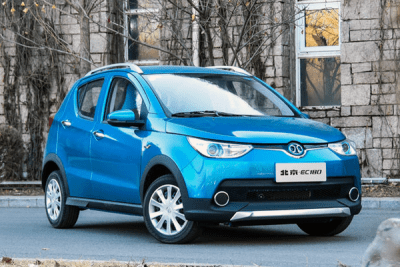 the Chinese hatchback just ahead of the Nissan Leaf, up nearly 85% to 87,000 deliveries thanks to the second generation of the hatchback. With the bigger 60kW battery pack becoming available in 2019, the Leaf should be able to pass the 100k mark this year. JAC has almost doubled up sales of its electric cars, to nearly 56,000 deliveries, moving up to 4th place ahead of the Tesla Model S and Model X, which see stable sales for the two models combined, with a more even spread between the two. The rest of the top-15 exists almost exclusively of Chinese nameplates, with the exception of the Renault Zoe at #9, up 26.915 to over 40,000 deliveries.
the Chinese hatchback just ahead of the Nissan Leaf, up nearly 85% to 87,000 deliveries thanks to the second generation of the hatchback. With the bigger 60kW battery pack becoming available in 2019, the Leaf should be able to pass the 100k mark this year. JAC has almost doubled up sales of its electric cars, to nearly 56,000 deliveries, moving up to 4th place ahead of the Tesla Model S and Model X, which see stable sales for the two models combined, with a more even spread between the two. The rest of the top-15 exists almost exclusively of Chinese nameplates, with the exception of the Renault Zoe at #9, up 26.915 to over 40,000 deliveries.
In 2019, the global EV market is expected to continue its explosive growth rate as new models continue to enter the market, both in the luxury and the mainstream segments, and the market has proven that improved availability, especially when paired to ever-improving technology, is a recipe for growth in demand. We should see the BYD Yuan EV storm up the ranking as the model scored a #12 position in 2018 with just half a year of sales, and showing promising volumes in the last quarter of the year. We also have high expectations of the Baojun E100 as our author John McHarris has discussed in his analysis of SAIC Motor. We will also see the arrival of the Hyundai Kona EV in the ranking, thanks to promising specs at an affordable price.
Best selling electric cars worldwide 2018
| Model | 2018 | 2017 | Change | |
| 1 | Tesla Model 3 | 145.846 | 0 | New |
| 2 | BAIC EC180 | 90.637 | 78.079 | 16,1% |
| 3 | Nissan Leaf | 87.149 | 47.195 | 84,7% |
| 4 | JAC iEV | 55.570 | 28.262 | 96,6% |
| 5 | Tesla Model S | 50.045 | 54.715 | -8,5% |
| 6 | Tesla Model X | 49.349 | 46.535 | 6,0% |
| 7 | Chery eQ EV | 46.967 | 25.784 | 82,2% |
| 8 | BYD e5 | 46.251 | 23.632 | 95,7% |
| 9 | Renault Zoe | 40.508 | 31.916 | 26,9% |
| 10 | JMC E200 | 39.883 | 16.247 | 145,5% |
| 11 | BAIC EU-Series | 37.343 | 13.158 | 183,8% |
| 12 | BYD Yuan EV | 35.699 | 0 | New |
| 13 | BAIC EX-Series | 32.810 | 4.212 | 679,0% |
| 14 | Geely Emgrand EV | 31.853 | 19.899 | 60,1% |
| 15 | Hawtai EV160 | 29.938 | 11.823 | 153,2% |
Sources: JATO Dynamics, manufacturers, ev-sales.blogspot
If you require any additional data on EV sales (or charging infrastructure) worldwide for your business, please get in touch with us for a quotation. We can supply on request:
- Monthly registrations on all BEV, PHEV, FCEV and HEV by country and model.
- Future plug-in (BEV & PHEV) vehicle roll-out calendar 2018-2022
- Vehicle Specification database on all selling plug-ins (BEV & PHEV)
- Charging Infrastructure database by Country and Connector Type
- Battery Shipment Tracker by Chemistry, Battery Maker & to which OEM, in MWh.
- BEV & PHEV Buses & CV Registrations

